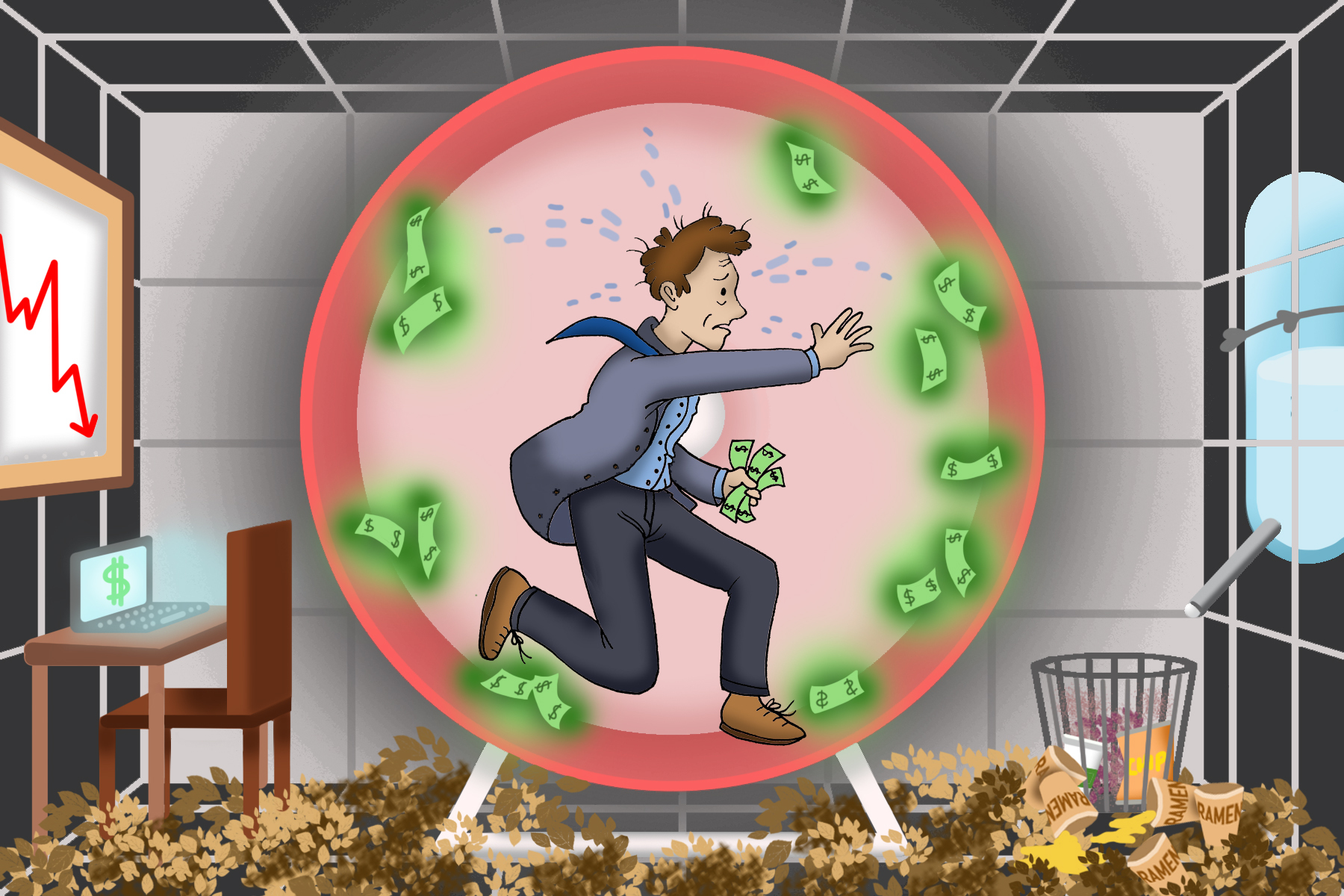In today’s rapidly changing society, it’s evident that people are drawn into an incessant whirlpool of competition. The pursuit of success, wealth, and power often comes at the expense of leisure time and happiness, resulting in a stress-inducing lifestyle. With increased focus on repetitive work, people find themselves with less time to spend with their loved ones. This widespread phenomenon, commonly known as the “rat race,” has become a prevalent feature of modern society.
One of the most conspicuous characteristics of the rat race is its pervasive culture of comparison and competition among individuals. Imagine being stranded on a deserted island with no other humans around — would you still strive relentlessly to amass wealth? Similarly, if you were just staying at home, would you go all-out to dress up as if you were attending a grand party? The likely answer is no, as the absence of competition renders such efforts seemingly pointless. However, in today’s society, where resources are limited but desires are insatiable, people yearn for a bigger house, more money, and a higher social status than their peers. As a result, they engage in cutthroat competition, constantly striving to outdo others in the never-ending race to the top.
While healthy competition can serve as a driving force for individuals to strive toward higher goals, the relentless and exhausting competition inherent in the rat race can have devastating effects. One of the primary reasons for this is the pervasive sense of meaningless work. Many people dedicate a substantial portion of their time to work at the cost of their leisure time, only to find that their jobs do not bring them any satisfaction or sense of purpose. Rather than experiencing fulfillment and a sense of self-worth, they find themselves working simply to survive and keep up with others. This passive and monotonous working environment can result in feelings of anxiety and depression as individuals struggle to find meaning and fulfillment in their daily grind.
The primary driving force behind the rat race mentality is the consumerist culture that dominates society. In a consumerist society, an individual’s well-being is often equated with their material possessions. People are constantly encouraged to earn more money and purchase more products in order to achieve success and fulfillment. As a result, individuals feel compelled to pursue lucrative careers, work longer hours or take on multiple jobs in order to maintain this desired lifestyle.
Furthermore, economic factors such as job insecurity and income inequality also contribute to the rat race mentality. The global impact of the COVID-19 pandemic has been profound, resulting in business closures and widespread job losses. Certain groups, such as low-wage workers, women and minorities, have been disproportionately affected. As a result, with limited stable job opportunities available, people feel compelled to work harder in order to secure their current jobs and maintain financial stability. Additionally, college students may prioritize pursuing high-salary jobs over their personal interests, further perpetuating the cycle of the rat race.
The advancement of technology has also played a significant role in fostering the rat race lifestyle. With the ubiquity of the internet and social media, people are constantly connected and inundated with information about others’ seemingly perfect “highlight moments” and success stories. This constant exposure to others’ achievements can fuel a sense of competition and comparison, further driving individuals to engage in the rat race mentality.
Moreover, technology has also increased efficiency in the workplace. Remote work and virtual meetings through platforms like Zoom have blurred the boundaries between work and personal life. As a result, many people find themselves working longer hours, experiencing heightened stress levels and struggling to maintain a healthy work-life balance. The constant pressure to be “online” and available for work can intensify the rat race mentality, as individuals feel compelled to constantly prove their worth and keep up with the demands of the digital world.
The scourge of the rat race is most prevalent among college students. Many students prioritize maintaining high GPAs and securing high-salary job opportunities at the expense of personal growth and well-being. This narrow focus on resume-building over exploring passions can result in an unhealthy work-life balance, leading to mental health problems among college students.
So, how can we break free from the rat race?
Prioritize Finding Meaning in Your Work
While the pursuit of high-paying jobs is understandable, it is crucial for college students to align their work and studies with their passions. Engaging in a job that feels pointless and consumes most of your time can lead to depression and ultimately giving up. Therefore, strive to find purpose and fulfillment in both your work and studies.
Focus on Personal Growth
Comparisons can lead to overlooking your own unique strengths and weaknesses and feeling pressured to conform to external expectations. This can result in anxiety, insecurity and self-doubt. It’s important to recognize that personal growth is a unique journey for each individual, and what works for someone else may not work for you. Prioritize your own growth and progress at your own pace, and cultivate self-awareness and authenticity. By doing so, you can develop a fulfilling and meaningful life that aligns with your own values and goals.
Prioritize Your Mental Health
College students face various stressors such as academic pressure, financial concerns and social challenges. However, constantly competing and pushing ourselves to outperform others at the expense of our well-being can lead to mental health issues. Engaging in the rat race and neglecting relaxation and self-care can result in increased stress, anxiety and even depression. Therefore, it is crucial to take breaks, relax with friends and prioritize self-care. Additionally, most colleges offer mental health counseling, so don’t hesitate to ask for help if needed.
As Lily Tomlin famously said, “the trouble with the rat race is that even if you win, you’re still a rat.” From a human nature perspective, fear and greed are easily exploitable factors. Fear can be manipulated by low income and financial insecurity, while greed can be fueled by the pursuit of accumulating more wealth and power. However, even if we surpass others and amass wealth and power, we may still find ourselves trapped in the never-ending race, much like a rat in a maze. The rat race is not a typical healthy competition or striving for success, but rather a result of distorted values. It is a harmful pattern that involves behaviors that not only harm individuals but also society as a whole. Therefore, it is crucial to find a way to break free from this destructive cycle and seek a different path.

















